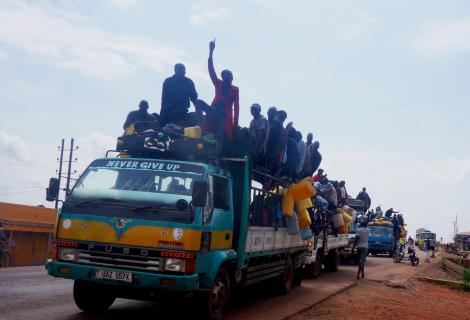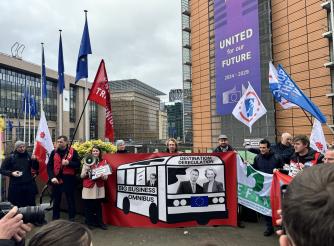Celebrating the power of human rights defenders

A selection of stories from around the world
Human rights are standards that allow all people to live with dignity, freedom, equality, justice, and peace. Every person has these rights simply because they are human beings. Human rights are part of national and international law, contained in constitutions, treaties and declarations. Governments have the primary responsibility for protecting and promoting human rights. However, governments are not solely responsible for ensuring human rights.
Human rights defenders are people who, individually or with others, act to promote and protect human rights. ActionAid, in partnership with the Centre for Applied Human Rights (CAHR) at the University of York, has proudly developed a series of inspirational stories celebrating the power and courage of human rights defenders.
The project, ‘Supporting Human Rights Defenders and Social Movements Pushing Back in Contexts of Shrinking Civic and Democratic Space,’ has been collecting examples of best practice and innovation by human rights defenders - individuals organisations and social movements - in eight case study countries (France, Guatemala, Kenya, South Africa, Spain, Uganda, Zambia and Zimbabwe). We tell the stories of their impact in pushing back to promote and protect human rights in the context of shrinking civic space.
These stories are important because many governments around the world continue to pursue neoliberal economic and social policies which undermine their compliance with human rights obligations and ecological sustainability. People, and the planet, are suffering as a direct result.
Governments in both the North and the South are suppressing dissenting voices by enacting a range of restrictions on core freedoms, such as freedom of assembly, expression and association. They are actively harassing and demonizing human rights defenders in the name of “development” and “need to protect national sovereignty”. These human rights abuses frequently involve not just governments, but corporate interests. As some of these stories show, powerful multinationals also operate beyond the control of governments to suppress criticism or actions that affect their interests.
We hope you find these stories as inspiring as we do and we thank everyone around the world who continues to stand up for human rights.
The stories
Our story from France highlights corporate manipulation of legal processes and international agreements to prosecute activists (Strategic Lawsuit Against Public Participation-SLAPP) in order to prevent exposure of human rights abuses by companies.
From Guatemala our story centres on the malicious arrest of a young land campaigner called Abelino Chub Caal - an arrest sanctioned by agribusiness companies. Abelino has worked for over a decade on supporting community mobilisation and social movement building to protect indigenous rights.
From Kenya, we highlight the activism of community groups led by women. Despite violence, arrests and displacement, they have been supported to demand their rights to their community land which was leased to a conservancy company.
South Africa’s example highlights how black lesbian women living in townships are frequently exposed to violence, including rape and murder, due to their sexuality and their enormous bravery to make themselves visible and demand their rights.
Uganda’s story is about displacement, conflict, land disputes and the violation of communities’ rights in the name of conservation in Northern Uganda. It highlights the community’s determination to have its land bringing the issue to global attention.
Our Zimbabwe story is about the eviction of Vhimba people from community land to clear the area for the Zimbabwe Consolidated Mining Company to prospect for minerals and how the community was supported to challenge this in court – but the battle is far from over…
Our Spain case study focuses on the challenges, including racism and violence, that confront migrant women and their resilience. These challenges come from negative social attitudes, institutional discrimination and a legal framework that fails to protect migrant women’s rights.
Finally, our story from Zambia highlights the fire trucks anti-corruption protest. This resulted in arrests and a year-long trial, showing the shrinking of space for civil society and the determination of activists to defend and maintain their constitutional rights.

